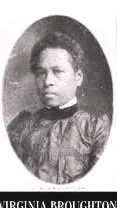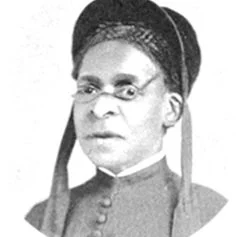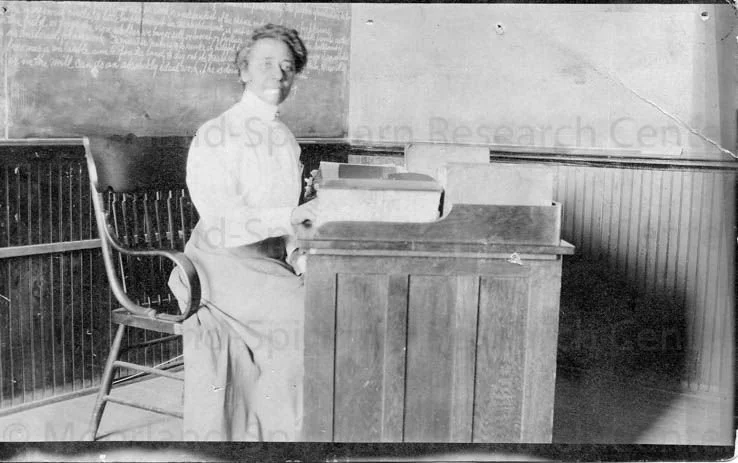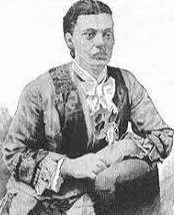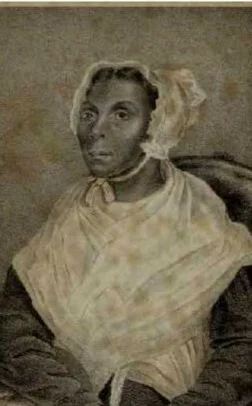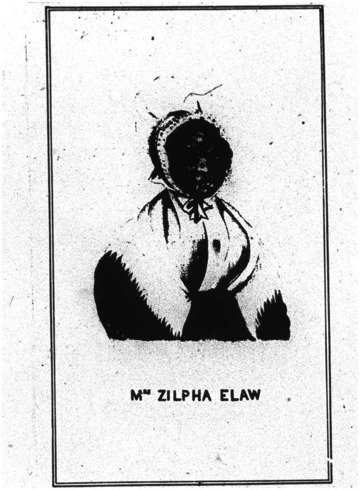Reading the Lectionary with African American Women Interpreters
Sunday, April 27, 2025
Weekly Lectionary Spotlight: Psalm 150 with Virginia Broughton
“Praise. Text, Ps. 150:6. “God is a jealous God…(2) Praise is comely for the upright. Ps. 33: 1 147: 1…(3) How shall we praise Him!... O praise the Lord, all ye nations, praise him all ye people. For his merciful kindness is great toward us and the truth of the Lord endureth forever. Praise ye the Lord. Ps. 117.”
~ Virginia Broughton
Sponsored By:
Bio: Virginia E. Broughton (formerly Walker) was free in Nashville, Tennessee, on March 1, 1856. Her father, Nelson Walker, formerly enslaved, became the first African American member of the Davidson County Bar Association against the many hurdles for African American uplift and freedom. Her mother was Eliza (Smart) Walker. 1867, Virginia became one of the first four students to enroll at Fisk College. She earned her bachelor’s degree with honors in 1875 and a master’s in teaching in 1878. This made her one of the first Black women to graduate from a liberal arts college in the South. After teaching in Memphis public schools, she started missionary work in 1887 at the Bible Bands Institute. Virginia became a well-known educator, missionary, and respected religious leader before her death on September 21, 1934.
Virginia Broughton
(1856-1934)
Bible Passage (NRSVue): “Praise the LORD! Praise God in his sanctuary; praise him in his mighty firmament! Praise him for his mighty deeds; praise him according to his surpassing greatness! Praise him with trumpet sound; praise him with lute and harp! Praise him with tambourine and dance; praise him with strings and pipe! Praise him with clanging cymbals;praise him with loud clashing cymbals! Let everything that breathes praise the LORD! Praise the LORD! (Psalm 150)
Her Interpretation: Virginia E. Broughton highlights the importance of Psalm 150:6 in sermon preparation. She presents a three-point interpretation that connects resurrection themes with vibrant worship. This worship, she emphasizes, is a testament to God’s presence and active work within the community. Broughton paraphrases the psalm’s call for exuberant praise through instruments, song, and testimony, presenting it as a blueprint for authentic Christian living. She refers to it as her “battle song,” demonstrating how its spirit of praise provides strength during challenging times. This underscores the creative power of the psalm, serving as a liturgical anchor and a source of empowerment, urging individuals to confront social inequity and deepen their faith in Spiritual autobiography, Virginia Broughton: The Life and Writings of a National Baptist Missionary.
Dr. Shively’s Reflection: I have a deep admiration for Virginia Broughton, an early African American biblical scholar who, in 1867, became one of the first students at my alma mater, Fisk University (then known as Fisk College). Her lifelong devotion to Psalm 150 showcases her scholarly insight and visionary leadership within American Christianity as a whole. By forging new paths for women in biblical scholarship, community leadership, and public ministry, she became a trailblazer whose influence extended beyond the classroom. Through her efforts to establish Bible Bands across the South and her contributions to national Baptist publications, she demonstrated how praise could be integrated into daily life and the collective struggle for justice. Her example inspires me to view worship as an act of courage and hope—an invitation for us to let our voices and actions resonate with gratitude, even in the face of adversity. Broughton’s legacy reminds us that authentic praise, grounded in scripture and practiced within the community, has the power to change hearts, uplift communities, and illuminate a path for future generations, even when situations appear impossible and unchangeable.
Points for Preaching & Devotion
Greetings!
Welcome to Dr. Shively Smith's Digital Gallery of Interpretation for the 2025 Easter and Pentecost Lectionary season. This gallery celebrates the unique and rich legacy of 19th-century African American women writers (circa 1789–1899). It explores how their distinct perspectives can inform our application of the Bible in 2025. Each of these women was a pioneering interpreter of Scripture, utilizing the prevalent translation of their time, the King James Version (KJV).
For more information, listen to Dr. Shively Smith explain her digital Lectionary.
This digital interpretation gallery, designed for the Easter and Pentecost seasons in 2025, is a valuable resource for enhancing sermon preparation and personal Bible study. It is suitable for preachers, teachers, students, and laypeople alike. Sponsored by the Calvin Institute of Christian Worship, Dr. Shively’s gallery invites you to actively explore the contributions of African American women from the 1800s as guides for biblical interpretation.
The guiding question(s) below will help you compare the quotations of 19th-century African American women writers with the specific Bible passages used each Sunday.
An Easter Question to Ponder:

